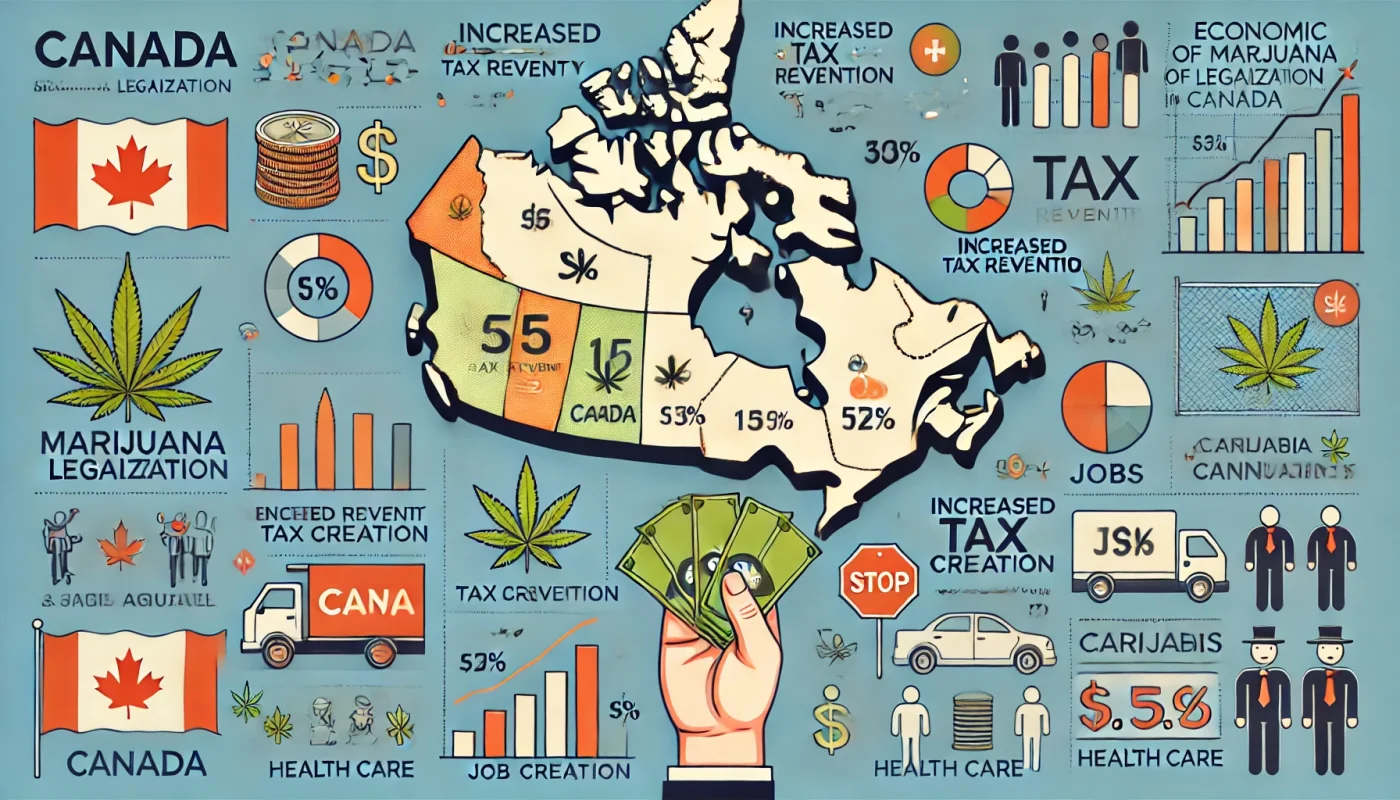Marijuana
The Economic Impact of the Marijuana Industry in Canada
Introduction
The legalization of marijuana in Canada has sparked considerable discussion regarding its economic implications. This landmark decision, made in October 2018, opened up new avenues for revenue, job creation, and investment. In this article, we will explore how the legalization of marijuana has affected Canada’s economy and draw comparisons to the economic impact of marijuana in Michigan.
How Does the Legalization of Marijuana Affect Canada’s Economy?
Job Creation and Employment
One of the most immediate effects of marijuana legalization in Canada has been the creation of jobs. The cannabis industry has provided employment opportunities in various sectors, including cultivation, retail, distribution, and research. According to a report by Deloitte, the cannabis sector in Canada has created thousands of jobs, both directly and indirectly. This growth in employment has contributed significantly to reducing unemployment rates and stimulating economic activity.
Tax Revenue and Government Income
Legalizing marijuana has also had a positive impact on government revenues. The taxation of cannabis products has generated substantial income for federal and provincial governments. This revenue is used to fund public services, infrastructure projects, and health initiatives. The Deloitte report highlights that the Canadian government has collected billions of dollars in tax revenue from the legal cannabis market, bolstering public finances and reducing fiscal deficits.
Investment and Economic Growth
The legalization of marijuana has attracted significant investment, both domestic and international. Companies involved in the cannabis industry have invested heavily in infrastructure, research and development, and marketing. This influx of capital has spurred economic growth and innovation within the sector. Additionally, the legalization has encouraged the growth of ancillary businesses, such as packaging, security, and logistics, further boosting economic activity.
Consumer Spending and Market Expansion
The legal cannabis market in Canada has seen robust consumer spending. With the removal of legal barriers, consumers have access to a regulated and safer product, leading to increased demand. The market expansion has also been driven by the development of new cannabis products, including edibles, beverages, and topicals. This diversification has attracted a broader range of consumers, contributing to overall market growth.
Challenges and Considerations
Despite these positive impacts, the marijuana industry in Canada faces challenges. Regulatory complexities, high taxation rates, and competition from the black market remain significant issues. Additionally, ensuring product quality and safety, managing public health concerns, and addressing social equity in the industry are ongoing considerations.
The Economic Impact of Marijuana in Michigan
Job Creation and Employment
Michigan, which legalized recreational marijuana in December 2019, has experienced similar economic benefits. The cannabis industry in Michigan has created thousands of jobs, ranging from cultivation and processing to retail and transportation. This job creation has been crucial in revitalizing local economies, particularly in areas hit hard by the decline of traditional manufacturing industries.
Tax Revenue and Government Income
The state of Michigan has also benefited from increased tax revenues from the cannabis industry. Taxes on marijuana sales have generated millions of dollars, which are used to fund public services, education, and infrastructure projects. This additional revenue has helped alleviate budget constraints and support community development initiatives.
Investment and Economic Growth
Like Canada, Michigan has seen significant investment in the cannabis sector. Both local and out-of-state investors have poured money into the development of cannabis businesses. This investment has driven economic growth, created new business opportunities, and spurred innovation within the industry. The positive economic impact is evident in the proliferation of cannabis dispensaries, cultivation centers, and ancillary businesses throughout the state.
Consumer Spending and Market Expansion
The legalization of marijuana in Michigan has led to increased consumer spending and market expansion. Residents and visitors now have access to a variety of cannabis products, resulting in higher sales and tax revenues. The market’s growth has also been fueled by the introduction of new and innovative products, appealing to a diverse range of consumers. This expansion has helped stimulate the local economy and create a vibrant cannabis market.
Challenges and Considerations
Despite the economic benefits, the marijuana industry in Michigan faces challenges similar to those in Canada. Regulatory compliance, competition from the black market, and ensuring product safety and quality are ongoing issues. Additionally, addressing social equity and ensuring that the benefits of legalization are distributed fairly remains a critical consideration for policymakers.
Conclusion
The legalization of marijuana has had a profound economic impact on both Canada and Michigan. In Canada, the cannabis industry has created jobs, generated tax revenue, attracted investment, and stimulated consumer spending. Similarly, Michigan has experienced job creation, increased tax revenues, and economic growth as a result of marijuana legalization. However, both regions face challenges in regulating the industry, ensuring product safety, and addressing social equity.
By understanding the economic impacts of marijuana legalization, policymakers and stakeholders can make informed decisions to maximize the benefits and address the challenges. The experiences of Canada and Michigan provide valuable insights into the potential economic outcomes of marijuana legalization and its role in shaping the future of the cannabis industry.
Reference: For more detailed insights and data, please refer to the Deloitte report: Deloitte Cannabis Annual Report.















